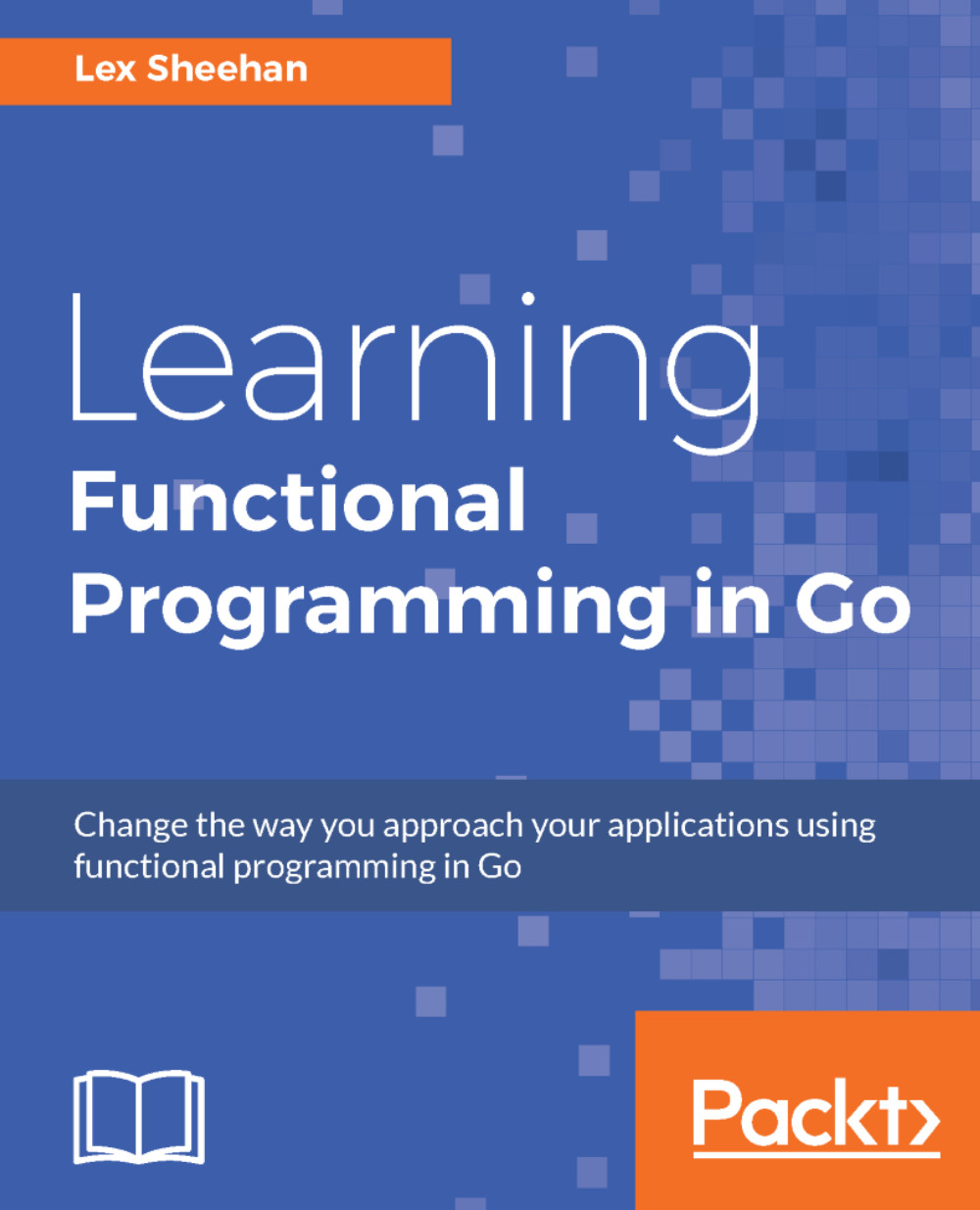Overview of this book
Lex Sheehan begins slowly, using easy-to-understand illustrations and working Go code to teach core functional programming (FP) principles such as referential transparency, laziness, recursion, currying, and chaining continuations.
This book is a tutorial for programmers looking to learn FP and apply it to write better code. Lex guides readers from basic techniques to advanced topics in a logical, concise, and clear progression.
The book is divided into four modules. The first module explains the functional style of programming: pure functional programming, manipulating collections, and using higher-order functions. In the second module, you will learn design patterns that you can use to build FP-style applications. In the next module, you will learn FP techniques that you can use to improve your API signatures, increase performance, and build better cloud-native applications. The last module covers Category Theory, Functors, Monoids, Monads, Type classes and Generics.
By the end of the book, you will be adept at building applications the FP way.



 Free Chapter
Free Chapter
